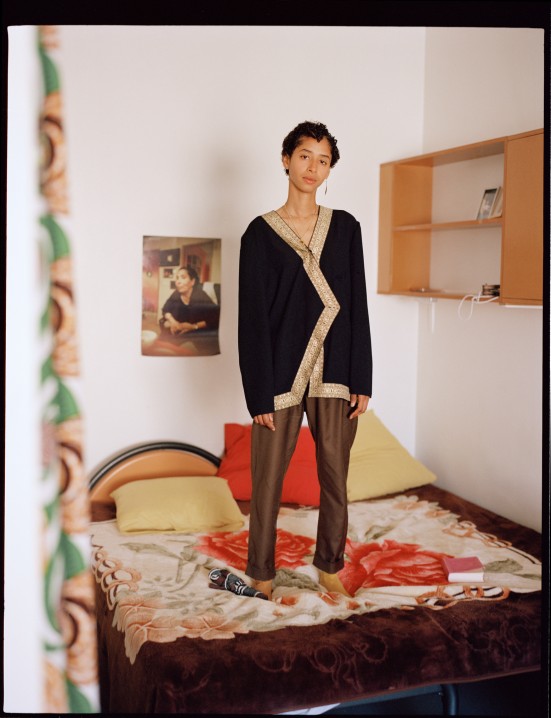Saya / Camille Lenain, France
“My grandmother, I think she knows. One day, she asked my aunt: ‘Saya, when she talks about her girlfriend, is it her girlfriend or her girlfriend?’ She tries to disentangle the truth from the false, I think she suspects something or that she knows it. She expects me to verbalize it and I think it will be done very soon.
* * *
I grew up in France in a practicing Muslim family, my father, he prays 5 times a day. Except I grew up with a kind of an abyss between us. I don’t consider myself religious, having experienced all the traumas that are linked to the way in which one learns religion. On the other hand, I consider myself a Muslim.
I had a lot of internalized homophobia. I still had my first love experiences, but in secret, and with a relationship to God that was this fear of going to hell, this fear of judgment, and to be completely rejected by my family.
I left the family environment by going to university. When I got into the dating world in university, it was all white people. In France, for me, queer people of color did not exist, I did not know where they were. It took time to understand that my desire, my tastes were also built in this dynamic around whiteness, the white homosexual lesbian model.
In my subconscious, whiteness represented open-mindedness. It was also a kind of internalized racism which was that, for me, people of color were necessarily homophobic, because I associated it with the framework of my family, with my high school too.
I came out to my mother when I was 20. She said ‘Ah! I thought she was pregnant!’ and it was fine. Except, a year later, we were having a conversation in her car and she was like, ‘I wish you were normal.’ That really hurt me. I stayed very quiet for a long time and it was one of the longest rides of my life.
I am still aware that she’s a woman who has also suffered racism, who arrived in France very young, in an environment of violence with my father. She is also a very traumatized person, who does not have the same tools as us to process it. I have no anger against her. I see her more now as a being, as a full-fledged human beyond her parental role. It took a long time for me to see her like this.
* * *
I thank God every time I experience negative moments. The negative parts actually allow you to go through the shadows to be able to see the light.”
This story was documented by Camille Farrah Lenain, a recipient of the 2022 Where Love is Illegal Fellowship. The Fellowship awarded three LGBTQI+ identifying photographers with grants to produce new photographic work and record testimonies about the queer experience. The Where Love Is Illegal campaign shares LGBTQI+ stories from around the world, supporting queer people to take back control of the narratives of their lives. The inaugural fellowship was funded through the support of Vans. This is a Witness Change project.




